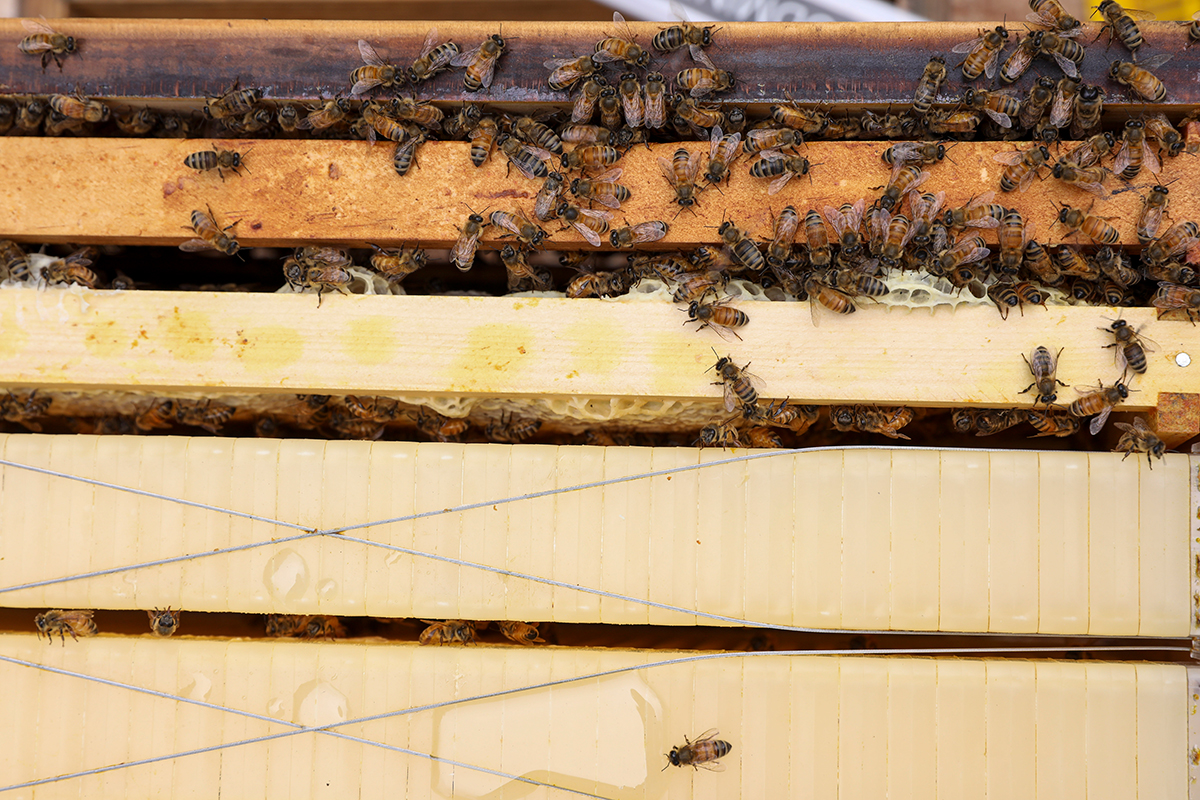Pollination, What's All The Buzz About?
Wednesday, October 5, 2022
by Ava Harris, 4th year Dietetic Major; Mariah McDaniel, MS, NDTR; Campus Pollinators Project

Did you know that pollinators are responsible for 1 in every 3 bites of food we eat?
As a certified Bee Campus USA affiliate, UGA is committed to conserving pollinators. Pollinators contribute over $18 billion in yearly crop revenue, and while honey bees make up a big portion of this contribution, other pollinators also deserve credit! Birds, bats, certain primates, and other insects are all valuable pollinators. They all support biodiversity and healthy ecosystems.
You can learn more about the UGA Campus Pollinator Project and how to support pollinators from the UGA Office of Sustainability.
Pollinators & Nutrition
Some of your favorite foods in the dining commons would not exist without the incredible power of pollinators! This month we are raising awareness about the importance of these animals to our cuisine.
As you may be able to guess, fruits and vegetables are the largest food groups that need pollination to grow. But did you know that nuts, spices, oils, and even beverages are impacted by pollinators? That’s right—the coffee plant that grew your morning brew would not exist without pollinators!
How can I contribute to pollinator health?
If you want to contribute to pollinator health, there are a variety of actions you could take! Creating a home garden or planting a pollinator-friendly plant could boost pollinator health. By providing them with readily available nutrients, they will be less stressed and could even have a new habitat!
Pollinator plants typically provide nectar and pollen, which are essential for pollinators. Planting native pollinator plants (PDF) is a great way to start. These plants include Virginia Bluebells, Dense Blazing Star, and Purple Coneflower.
If you don’t have the space or time to create your own garden, you can visit local gardens that support pollinator health, such as the State Botanical Garden of Georgia. This garden is a part of the University of Georgia and is a short bus ride away!
If you’d prefer to stay on campus, the Latin American Ethnobotanical Garden and Trial Gardens are a must-see. If luscious greenways and beautiful walking trails are your thing, visit the UGA Golf Course, home to our very own bee colony on the 10th hole!